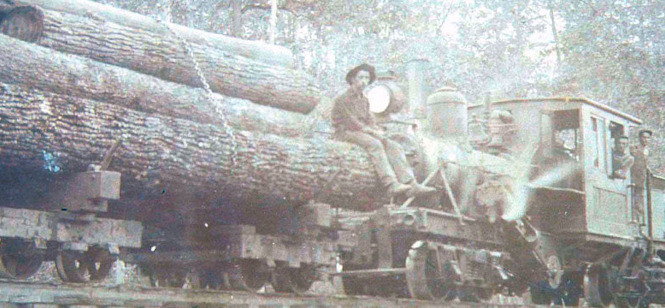The lush and green land that is Lobelville was officially called a settlement in 1854 as a post village that was named after Henry DeLobel, a Frenchman that lived there for seventeen years before returning to his homeland.
During that time, Lobelville’s citizens engaged in either agricultural or timber activities to support their families. Products that came from Lobelville were either used by the community or shipped out of the town via Britt’s Landing.
The town consisted of three stores and a school combined with a church, but over the years other additions to the town began to appear in the form of a couple of hotels, churches, and a bank. The town experienced its most signifi cant growth in the late 1880’s when a water mill was built by John Leeper. The mill provided Lobelville with a gristmill, sawmill, and a small amount of electrical power.
After the many wars, the people began to change to fi t their certain circumstances. In between the periods of the War of 1812 and the Civil War, like many parts of the country, crime in Lobelville reached a point that left the town in a constant state of fear. The sheriffs were little help as they were targeted most of the time and had no control over citizens who broke the law.
One such instance was when a local villager killed another man because he “meddled” in his business and the sheriff went over to his house to tell him he had a warrant for his arrest. The resident, who will remain unnamed, promptly replied, “It had better stay there!” It is rumored that the sheriff took his advice and left posthaste.
As economic revival crossed the nation, Lobelville benefi ted from the growth of its newest cash crop, peanuts.
Growing peanuts became a thriving business around Lobelville, effectively replacing cotton. With the growing of peanuts came the almost endless amount of blackbirds in the area. With something both harder and safer to shoot at, blackbird hunting became a more acceptable way to pass the time. In the end, the blackbirds prevailed and the peanut crops began to decline; once again Lobelville changed its tactics in ways of production.
Perhaps the most common business in operation was whiskey making. Prior to the Civil War, anyone that wished to make whiskey was able to legally produce whatever amount of distilled spirits they desired, for personal use or for profi t. Therefore, almost every mill around had a whiskey still in operation. However, after the Civil War a tax was enacted of $1.10 for every gallon, effectively preventing the whiskey production. That is not to say that it stopped altogether; Lobelville was supposedly voted dry, but the practice of whiskey making continued illegally on a broad scale until the late 1950’s.
The most significant change that Lobelville experienced was the construction of the natural gas pipelines throughout the area, beginning in 1944. The pumping station was constructed in Lobelville proper and provided the community with many well-paying jobs in both the short and long term perspectives. This single activity brought many other businesses into the area with the purpose of providing services to the pipeline workers. Such businesses as Bates Fabricating, Reliable Products, Kolpak, Red Kap, and Watkins Manufacturing were drawn into the county by the construction of the pipeline.
As you can see, Lobelville has continued to change and adapt to the world around, and is doing so again. It has been and still is the gateway to Perry County, with a culture and economic activity being enhanced by many holistic and healthy living initiatives which are important trends in America today...but that is another story.




